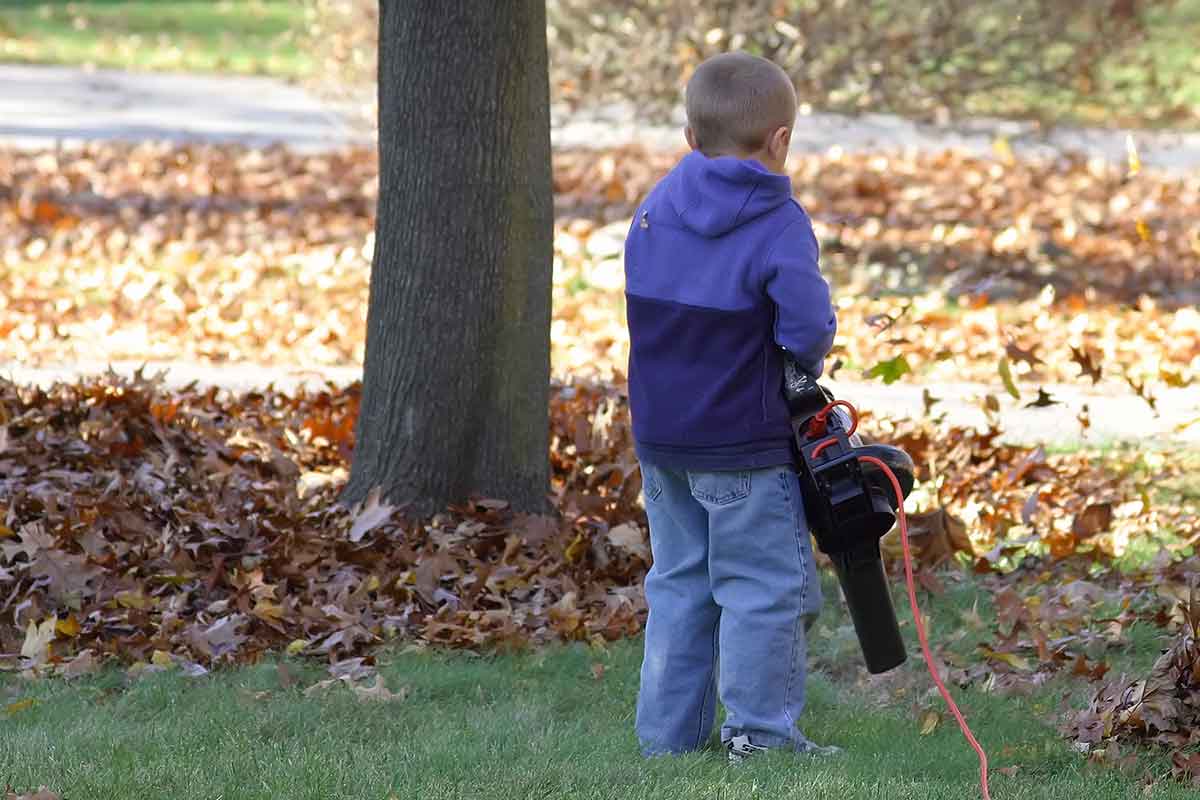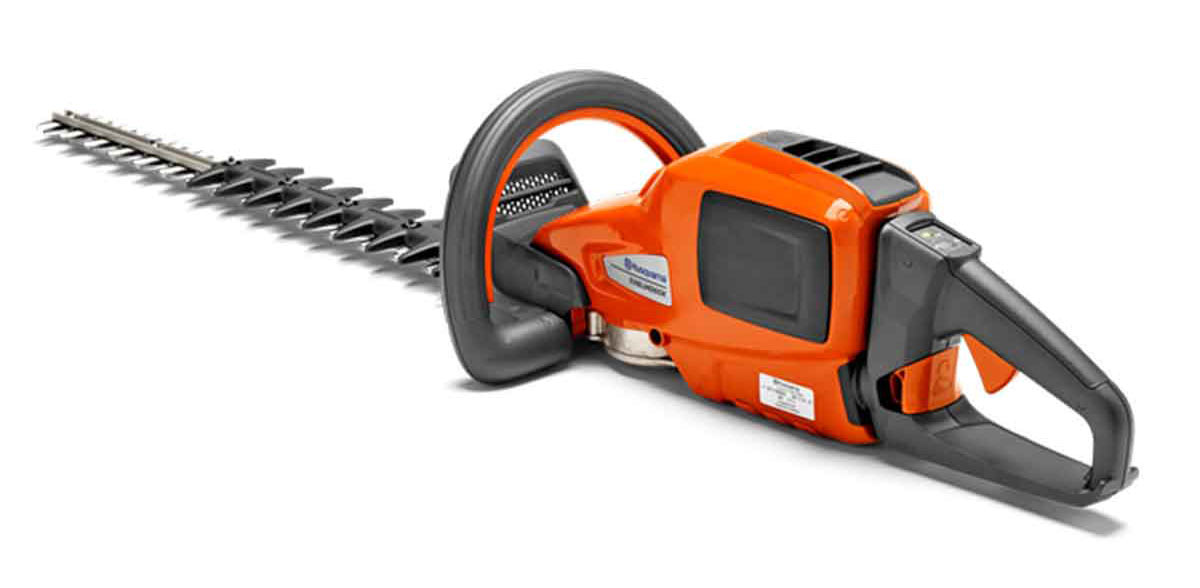Quality matters when hiring for a big project. Call a Best Pick now!
A couple years ago, there’d be no point contesting the superiority of gas-powered lawn equipment. Today, technology is narrowing the gap, and electric lawn equipment is holding its own. With greater power and longer battery life, electric equipment is now a viable option.
I’ve personally tested an electric blower and hedge trimmer. The blower was a breath of fresh air, literally. I know that some people like the smell of gasoline—I’m not one of those people. The electric leaf blower was significantly lighter than the gas-powered version, and the whole experience was more enjoyable because I wasn’t inhaling gas fumes.
Growing up, it was my job to blow off the driveway. I’d reluctantly drag myself outside, struggle with the cumbersome crank start, and put the heavy backpack blower on. The gas/electric difference couldn’t have been larger. I picked it up and was shocked by its weight. I connected the battery and headed outside to try it out. It started with the push of a button, and I started clearing off the patio. It. Was. Amazing. It was quiet, lightweight, and surprisingly effective.
One thing that really hit me while using the electric outdoor power equipment—it was fun. For me, the weight difference and absence of fumes was huge. I felt like I could spend more time working outside because I wasn’t coughing from gas fumes or tiring quickly from heavy equipment.
Why You Should Consider Going Electric
Ease of use
Electric lawn equipment is generally lighter, safer, easier to start, and requires less maintenance than gas equipment, making it easier to use. Because electric equipment is lighter, it’s easier to handle, which is definitely something you should be interested in when wielding tools with sharp edges.
My mom has jumped on the electric equipment train, which gave me the opportunity to try out an electric hedge trimmer. I used the small trimmer to cut back the climbing vines that had taken over the stone wall on the back patio. The electric trimmer made quick work of those vines. It was lightweight, easy to maneuver, and the battery life was great.
Noise
Your family and neighbors will thank you. Many neighborhoods are passing ordinances on loud, gas-powered equipment, so you may soon find yourself in a position where going electric is the only option.
Quieter equipment also gives you more freedom in terms of work time. Want to get out there early in the morning when it’s still cool? No problem, because your equipment is quiet and won’t wake up the whole neighborhood.
Lower operating costs
Worry about oil, gas, and filters no more. With electric power equipment, you just need to make sure the battery (or batteries) is charged. No more making sure you’ve got gas with the right amount of ethanol, no more figuring out how to change parts, and no more gas or oil stains on your concrete and clothes.
Pollution
Gas-powered lawn equipment adds a significant amount of pollution (carbon dioxide, debris, contaminants) to the environment. In addition to helping the environment, you’ll also be rewarded with cleaner air when you’re outside sculpting your lawn.
What Are Your Options?

Corded lawn equipment
Corded equipment offers greater power than battery-powered equipment—with strings attached. You have to worry about navigating obstacles and making sure you’re close to an outlet or have an extension cord long enough to handle the area. Corded equipment tends to be a little lighter than battery powered because you’re not lugging around the power source.
If you go corded, look into options with removable cords that can be easily replaced if something happens. In terms of power, corded equipment provides a constant source of power that doesn’t change according to charge levels. Because of this, corded tools tend to be more powerful than battery-powered ones. Larger amps (A) translate into more power with corded equipment.
If you don’t have an outdoor outlet where you need it, all you need to do is call your local electrician to get one installed.
Battery-powered lawn equipment
Battery-powered lawn equipment offers more freedom than its corded counterparts, allowing you to go wherever you want in your yard without worrying about a power cord. A battery-powered lawn mower is perfect for a smaller yard, whereas corded options may be better for those dealing with a larger area.
Worried about running out of power? If you tend to spend all day in the yard, you may want to consider purchasing extra batteries to lengthen your work time. Purchasing equipment by the same manufacturer with the same batteries means you can use the same batteries across different tools.
If you’ve decided to purchase battery-powered lawn equipment, carefully consider voltage (V). Higher voltage means more torque which equals greater power in your outdoor endeavors. Remember that more voltage also means a heavier battery.
Types of tools
These are the most common types of lawn equipment and the primary features for each.
- Mower. Consider cut width, height adjustment options, and wheel size. Larger cut widths will decrease the time it takes for you to mow your lawn, the type of grass you have will determine your height needs, and larger wheel size usually indicates increased maneuverability.
- Leaf Blower. Look at the MPH, speed settings, and tube sizes. These features will affect the blower’s power and the amount of debris you’ll be able to move.
- String Trimmer (known to me most of my life as a weed eater). Review cutting swath options, the number of line heads, method of line loading, and speed settings. Cutting swath refers to the size of the cutting area, loading methods are especially important if you change line regularly, and speed settings and number of line heads tackle various materials differently.
- Hedge Trimmer. Remember to take blade size, weight, and balance into account since you’ll probably be using it above your head for an extended period of time.
- Chainsaw. Does it have anti-vibration features, tool-less chain adjustment, or low-kickback features? Anti-vibration and low-kickback increase safety, and tool-less adjustment makes maintenance easier.
- Snow Blower. Look at clearing width (how big of an area are you trying to clear?), intake height (how much snow are you usually clearing?), speed controls, wheel size (larger wheels are easier to maneuver), and chute control (how often are you having to adjust this feature?).
Bottom Line: The Pros and Cons of Electric Lawn Equipment

Pros:
- Operating Cost. Lower running and maintenance costs.
- Time. Save time starting up equipment and troubleshooting mechanical issues.
- Electric Power. Relies on electricity (via cord or battery charge) so you don’t have to worry about purchasing oil or gas.
- Less Maintenance. Little to no maintenance required.
- Lightweight. Lighter weight equipment means better safety and increased maneuverability.
- Less Noise. Much quieter and doesn’t add to noise pollution.
Cons:
- Upfront Cost. Can be expensive depending on model and battery size.
- Use Time. May take more time to complete tasks.
- Power and Battery Charge. Might not be powerful enough to complete task at hand or require multiple batteries/charges.
- Tethered Cord. Corded models need lengthy extension cords.
Still unsure? Test the electric power equipment waters with one of your used tools, but choose carefully in case you want to expand your collection.


























